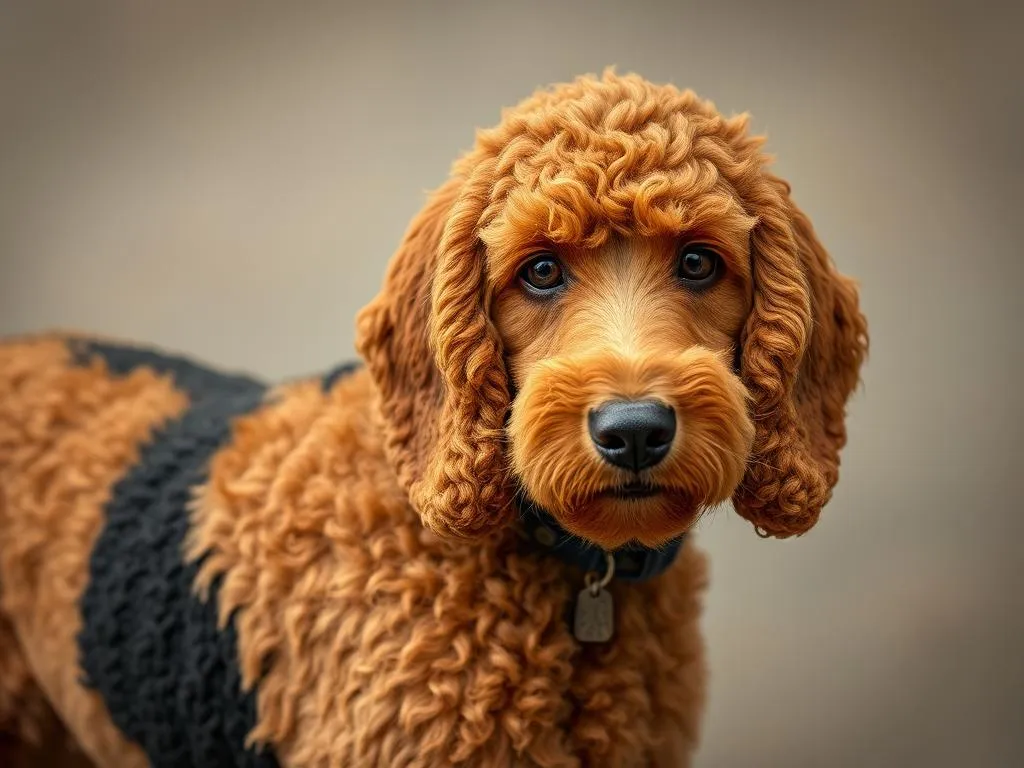
Dogs have been loyal companions to humans for thousands of years, serving roles in work, protection, and companionship. The vast array of dog breeds reflects the diverse needs and preferences of dog owners. Among these breeds, mixed breeds, especially hybrid dogs, have gained popularity due to their unique traits and characteristics. One particularly interesting hybrid is the Bloodhound Poodle mix. This article delves into the distinctive qualities of this mix, providing insights into its parent breeds, temperament, care requirements, and much more.
Understanding the Bloodhound Poodle Mix
Definition of Hybrid Breeds
Hybrid breeds, often referred to as designer or crossbreeds, are the result of intentionally breeding two different purebred dogs. The goal is to create a dog that inherits desirable traits from both parent breeds. Each hybrid dog has its unique characteristics, often resulting in an interesting mix of appearance, temperament, and health traits.
Characteristics of the Bloodhound Poodle Mix
The Bloodhound Poodle mix combines the robust, scent-driven nature of the Bloodhound with the intelligence and hypoallergenic coat of the Poodle.
- Appearance and Size: This mix can vary in size depending on which type of Poodle is used (Standard, Miniature, or Toy). Typically, these dogs range from medium to large, with varying heights between 12 to 24 inches at the shoulder.
- Coat Types and Colors: The coat may inherit the curly texture of the Poodle or the more relaxed, wavy fur of the Bloodhound. Coat colors can be diverse, including solid colors, merle, or combinations of brown, black, and cream.
- Distinctive Traits: Expect a friendly and curious demeanor, showcasing the investigative nature of the Bloodhound and the playful spirit of the Poodle.
Parent Breed Overview
Bloodhound
The Bloodhound is renowned for its exceptional sense of smell and tracking ability.
- History and Origin: Originally bred in Belgium and France, Bloodhounds were used by monks for tracking game and later became essential in search and rescue operations. Their acute sense of smell can follow a scent trail that is days old, making them invaluable in tracking lost individuals.
- Key Characteristics: Bloodhounds are known for their droopy ears, wrinkled skin, and a gentle disposition. They are affectionate and loyal but can be stubborn, requiring consistent training.
- Health Issues: Common health concerns for Bloodhounds include hip dysplasia, ear infections due to their floppy ears, and certain skin conditions.
Poodle
Poodles are celebrated for their intelligence and versatility, excelling in various dog sports and as service animals.
- History and Origin: Originally bred in Germany as water retrievers, Poodles come in three sizes: Standard, Miniature, and Toy. They have a rich history as circus performers and companions for nobility.
- Key Characteristics: Poodles are known for their hypoallergenic coats, which can be curly or corded. They are highly trainable and sociable, making them great family pets.
- Health Concerns: Poodles can be prone to conditions such as hip dysplasia, progressive retinal atrophy, and certain skin disorders.
Temperament and Behavior
Personality Traits
The Bloodhound Poodle mix typically inherits a blend of traits from both parent breeds.
- Temperament: Expect a friendly, outgoing dog that is eager to please. These dogs are usually good with children and can adapt well to various living situations.
- Socialization Needs: Early socialization is crucial. Exposing your dog to different environments, people, and animals can help them develop into a well-rounded companion.
Training and Obedience
Training a Bloodhound Poodle mix can be rewarding but requires patience and consistency.
- Training Techniques: Positive reinforcement works best with this mix. Use treats, praise, and playtime to motivate your dog. Start with basic commands and gradually progress to more complex tasks.
- Common Behavioral Challenges: The stubbornness of the Bloodhound may surface, making training a challenge. Address these issues with gentle persistence and by keeping training sessions fun and engaging.
Health and Lifespan
Common Health Issues
Like all mixed breeds, the Bloodhound Poodle mix can inherit health issues from both parent breeds.
- Genetic Predispositions: Potential health problems can include hip dysplasia, ear infections, and heart issues. Regular veterinary check-ups are essential to monitor health and catch any issues early.
- Importance of Health Checks: Routine examinations, vaccinations, and preventive care can significantly enhance your dog’s quality of life.
Lifespan Expectations
The average lifespan of a Bloodhound Poodle mix is typically between 10 to 15 years.
- Factors Influencing Longevity: Factors such as genetics, diet, exercise, and overall care can influence how long your dog lives. Maintaining a healthy weight and providing mental stimulation can contribute to a longer, healthier life.
Grooming and Care Requirements
Grooming Needs
Grooming needs for the Bloodhound Poodle mix will largely depend on its coat type.
- Specific Grooming Needs: If your dog inherits a curly coat, regular grooming is necessary to prevent matting. A brush at least once a week, along with regular baths, will help keep their coat healthy.
- Recommended Grooming Schedule: For dogs with a wavy coat, brushing every few weeks may suffice. Regular ear cleaning and nail trimming are also essential.
Exercise and Activity Level
This mix requires regular physical activity to stay healthy and happy.
- Daily Exercise Requirements: Aim for at least 60 minutes of exercise daily. Activities like walking, running, or playing fetch are great options.
- Mental Stimulation: Engaging your dog in puzzle toys, training sessions, and interactive games is crucial to keep them mentally stimulated.
Living with a Bloodhound Poodle Mix
Ideal Living Conditions
The Bloodhound Poodle mix can adapt well to various living environments.
- Best Living Environments: They do well in both apartments and houses, provided they receive enough exercise. A home with a yard is beneficial, but daily outdoor activities are a must.
- Compatibility with Children and Other Pets: This breed mix generally gets along well with children and other pets, making them a great addition to family life.
Cost of Ownership
Owning a Bloodhound Poodle mix comes with various costs to consider.
- Initial Costs: Adoption or purchase fees can range from $500 to $2,000 depending on the breeder or rescue organization.
- Ongoing Costs: Monthly expenses for food, grooming, and veterinary care can average between $100 to $300.
Conclusion
The Bloodhound Poodle mix is a unique and loving hybrid that offers a wonderful blend of traits from both parent breeds. Their friendly disposition, intelligence, and adaptability make them suitable for a variety of living situations and families. Prospective owners should consider their grooming and exercise needs, ensuring they can provide a loving and engaging environment for this delightful mix. Ultimately, responsible pet ownership and adoption can lead to rewarding companionship with this special breed mix.
FAQs
What are the benefits of owning a Bloodhound Poodle mix?
Owning a Bloodhound Poodle mix provides companionship, loyalty, and a playful spirit. Their intelligence makes them trainable, and their friendly nature makes them great family pets.
How do I find a reputable breeder for a Bloodhound Poodle mix?
Research breeders thoroughly, looking for those who prioritize health testing and provide a loving environment for their dogs. Visiting the breeder and meeting the puppies can also be helpful.
What should I feed my Bloodhound Poodle mix?
A balanced diet appropriate for your dog’s age, size, and activity level is important. Consult your veterinarian for specific dietary recommendations.
Are Bloodhound Poodle mixes good for first-time dog owners?
Yes, with proper training and socialization, the Bloodhound Poodle mix can be an excellent choice for first-time dog owners due to their friendly nature and adaptability.
How can I ensure my Bloodhound Poodle mix is healthy and happy?
Regular veterinary check-ups, a balanced diet, daily exercise, mental stimulation, and lots of love and attention will ensure your Bloodhound Poodle mix is healthy and happy.









